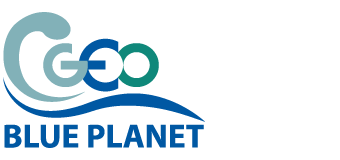BACKGROUND
Currently, there is a documented lack of reliable long-term marine data resources to support the development of strategies and policies related to sustainable use of the marine environment around Small Island Developing States in the Caribbean and adjacent countries in Latin America. The region is facing many coastal hazards including tsunamis, large amounts of sargassum seaweed beaching on coastlines and frequent unreported oil spills.
In recent years, the Caribbean region has faced challenges from oil spills. Large-scale oil spill incidents have included an April 2017 spill at Pointe-à-Pierre, Trinidad and Tobago and a July 2017 oil spill in Kingston Harbor, Jamaica. Illegal dumping of oil-contaminated waste by ships operating in the region is also a common occurrence.
A kick off workshop of 40 experts from 15 countries was held in May of 2018 to discuss sargassum and oil spill monitoring in the Caribbean and Adjacent regions. The participants included representatives from various United Nations entities, academia, governments, private companies and international initiatives.
OBJECTIVES
- Work with stakeholders at regional and local scales to identify data and information gaps;
- Provide networking and coordination support to connect the marine hazard community;
- Identify best practices in sargassum related monitoring and management to inform policy recommendations and to measure the impact of mitigation strategies.
ACTIVITIES
Identifying data and information gaps
- Stakeholder engagement workshops: GEO Blue Planet hosts workshops to identify user needs and current capabilities to guide strategies and policies.
- Data accessibility: oil spill project partners are identifying available data and working on logistics for publishing additional data as web services in collaboration with Esri and AmeriGEO.
Best practices
- Satellite detection of oil spills: resources are being sought to development of a satellite based oil spill monitoring program for oil spills in the wider Caribbean. This program would provide satellite-based analyses for oil spill incidences and issue reports on anomalous features in satellite imagery that are suspected to be caused by an accidental or intentional oil discharge.
- Ocean Best Practices System: OBPS has created a Sargassum management community within OBPS to share guidance on Sargassum-related activities.
- Operational products for the region: project partners are developing a Sargassum monitoring product for the entire tropical Atlantic region.
Networking and coordination
- Country-level information: GEO Blue Planet is working with collaborators in Mexico to develop country-specific pages and translation on the Sargassum Information Hub.
- Directory of Sargassum-related experts and organizations: GEO Blue Planet is working with IODE to create a Sargassum community on OceanExpert.
- Oil spill experts: networking is ongoing to connect the Regional Marine Pollution Emergency, Information and Training Centre – Caribe (REMPEITC) with relevant experts related to oil spill monitoring and forecasting and support their efforts to develop a GIS-based Environmental Hazard Mapping System.


